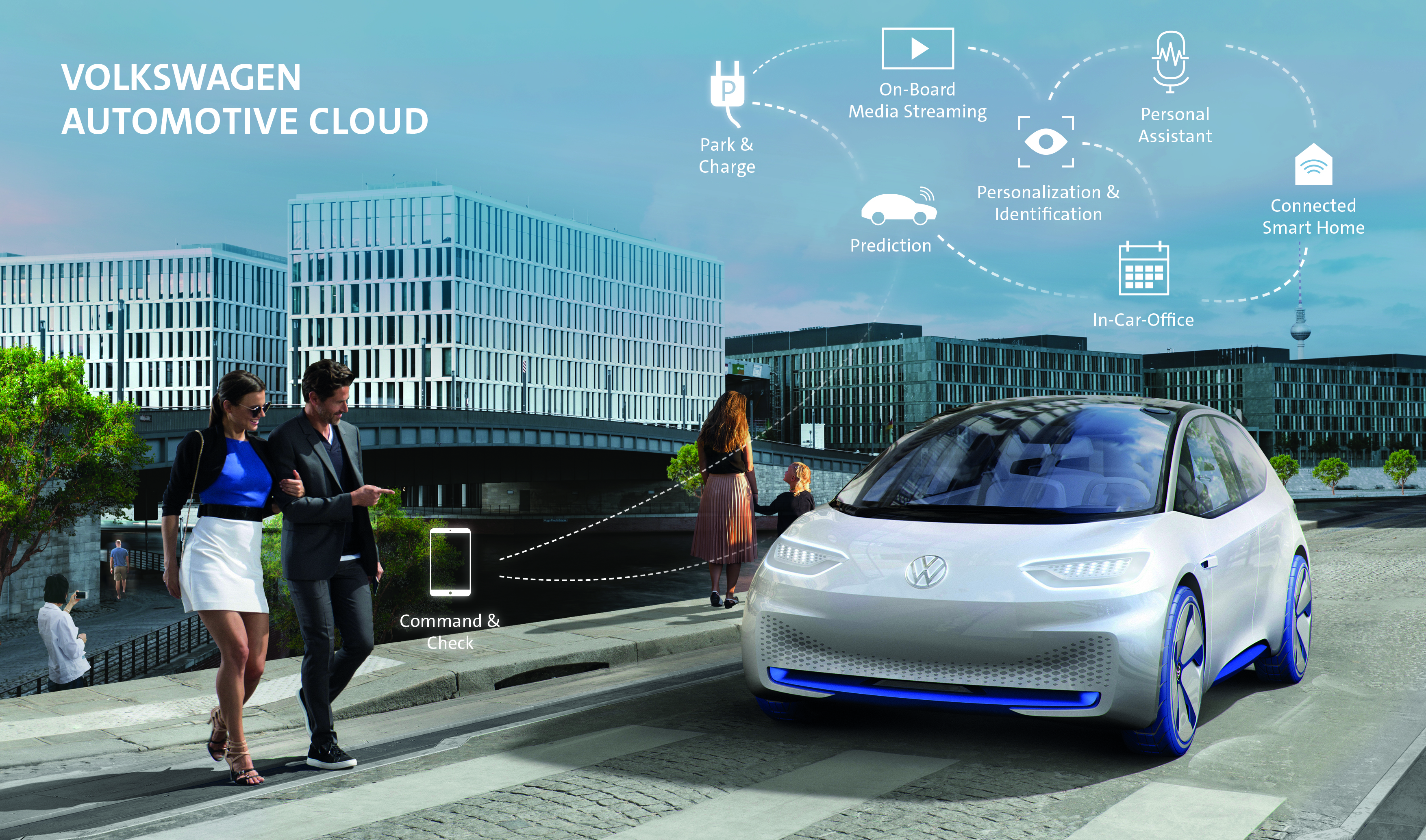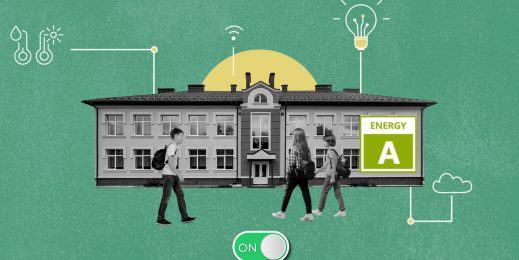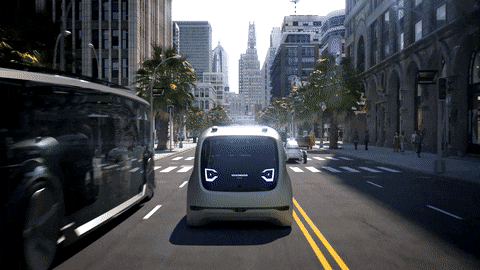
Driven to transform
Beyond automation: Volkswagen’s future of connected, shareable cars
Cast your mind back to your first mobile phone.
Chances are, you used it for calls, texts, and not much else. Now compare it to the sleek device that easily slips into your pocket – the thin slab of glass which provides near-infinite knowledge, entertainment and tools at your fingertips.
The mobile phone has evolved far beyond its initial purpose, becoming an indispensable pocketable companion for individuals in modern society. Looking at the automobile industry through a similar lens, it’s clear to see that the humble car – a technology which has had a marked impact on human society – is on the cusp of a similar evolutionary explosion.
Beyond automation
For the German car manufacturer Volkswagen, the future of the car goes beyond a mere four-wheeled chauffer and errand-runner. Our cars will also integrate with our lives in ways never before thought possible.
Earlier this year, the company revealed its plans for the Volkswagen Automotive Cloud – a platform which will create a seamless experience for drivers from the moment they enter, use, and leave their cars, ushering in a new era of truly connected vehicles.
Powered by Microsoft’s Azure cloud and IoT Edge platform, the Automotive Cloud will allow drivers to effortlessly remain in control of their professional and personal lives. From entering the car to the same music they were just listening to in their living room, to managing their appointments and carrying out work meetings via Skype, the car will evolve into an invaluable physical, and digital, assistant.
Beyond helping with individual needs, the possibilities of the Volkswagen Automotive Cloud can also extend to organisations:
“The cloud will let us update and adapt to market and consumer needs much faster,” says Heiko Huettel, Head of Connected Car at Volkswagen AG. “It will also be open to third party developers. For example, our interface could integrate with a company’s HR and finance system, providing a hassle-free corporate car-sharing solution. The cloud solution opens the doors to future use-cases which don’t even exist today.”
“The cloud solution opens the doors to future use cases which don’t even exist today.”
Cars as a service: the future of shareable vehicles
“A future in which every single Volkswagen vehicle is shareable in every way you can imagine. This is what we want to achieve,” Huettel states.
For Volkswagen, the future of connected vehicles transcends beyond automation and even digital assistance.
“We want a future where you can find and enter a car using nothing but your smartphone as a key, or letting friends and family borrow your car while you’re away, simply by granting them permission through an app. It’s a future of convenience. It’s what we’re striving for. I think this could have a huge impact on transportation infrastructure in general. Our most important goal is to enable people.”
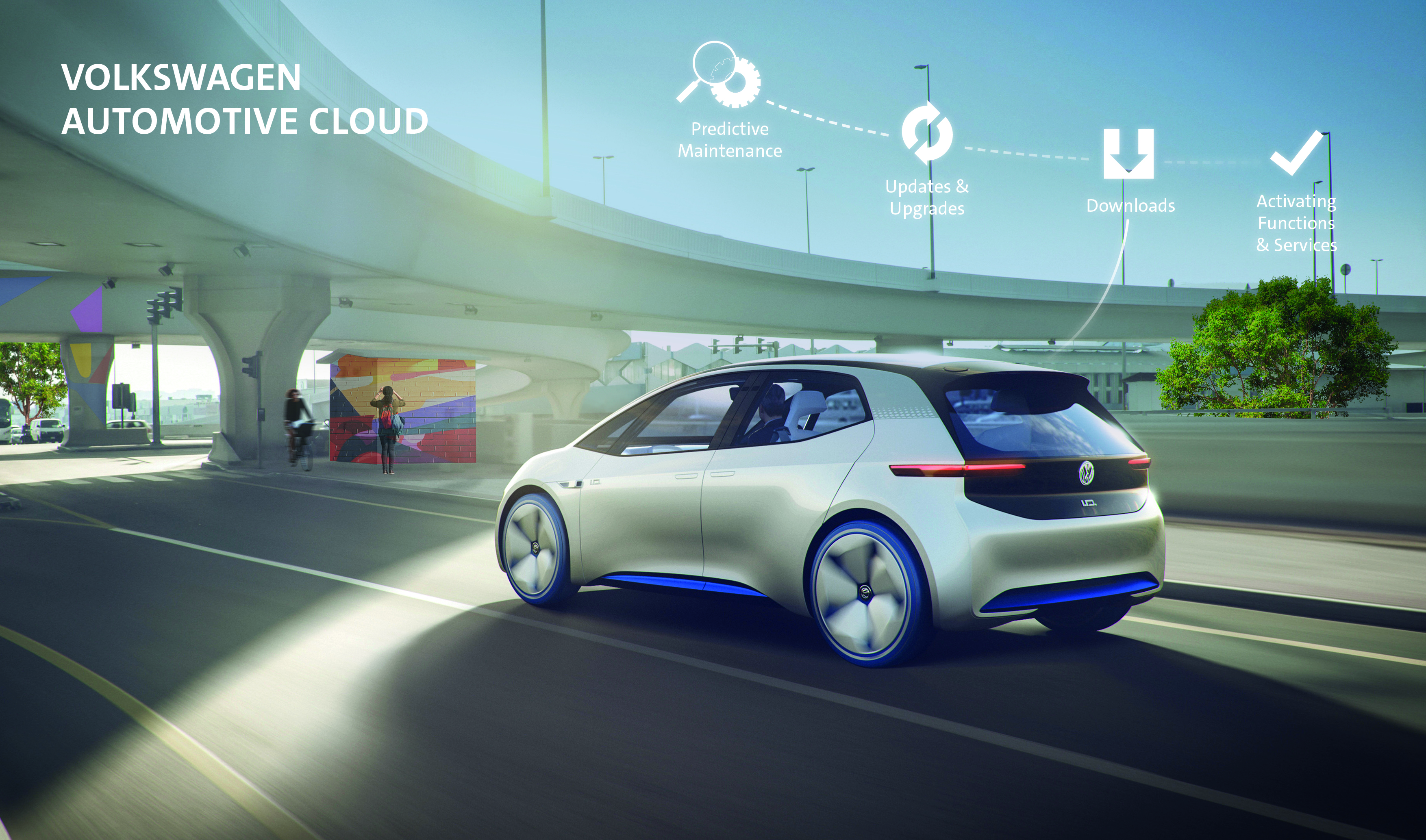
The importance (and integrity) of data
For technology to become more useful, and as it does more for us, data increasingly vital. Without it, the many conveniences of advances such digital assistants and other artificial intelligence-powered solutions, simply would not be able to exist.
In a world where companies are transforming into tech companies, where data privacy concerns are rightfully becoming more important, Volkswagen is approaching privacy from the ground up: “AI is the future, but before we all work on it, we need to focus on the first step,” says Huettel. “Not only what data, and how it’s used to maximum effect, but the security of this data is absolutely paramount. The first step must always be to ensure that customer data is safe. Then, and only then, can we safely leverage that data to its full potential, to benefit the customer’s life.”
The integrity of data is also a primary concern for Volkswagen, and programs such as Microsoft’s Shared Innovation Initiative ensure that Microsoft will never leverage Volkswagen’s data to compate against the company.
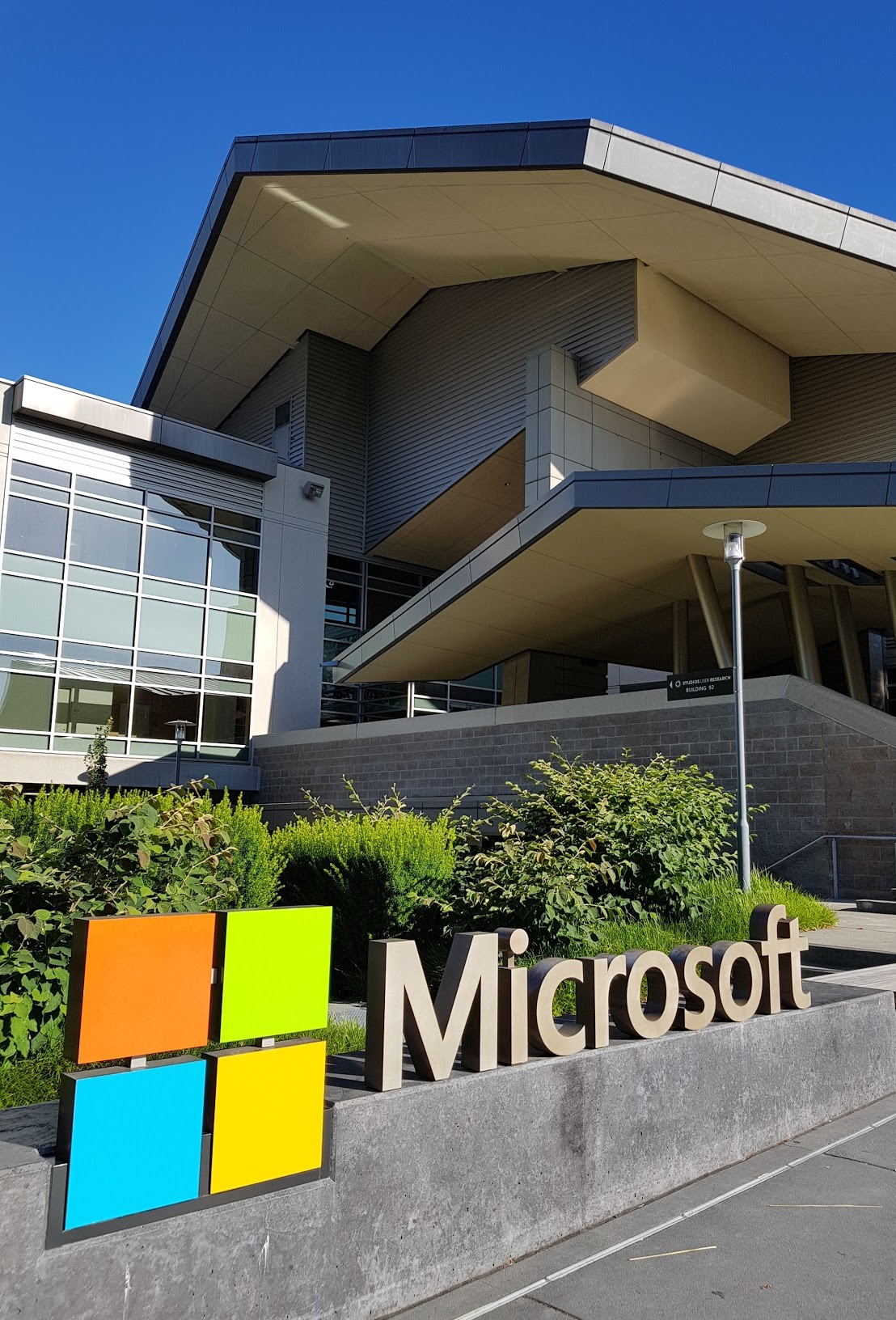 No tech without culture
No tech without culture
Beyond applying technology, the importance of culture and leadership cannot be overstated when it comes to transformation – especially a transformation as vast and as ambitious as the one that Volkswagen is undergoing.
As for the partnership between Volkswagen and Microsoft itself, Huettel states that “We had a lot of discussions and looked at offerings from several cloud vendors. We based our decision around organisational and cultural transformation. We weren’t just looking for a technology partner – we were looking for a cultural that is really interesting.”
As part of the partnership with Microsoft, Volkswagen will establish a new automotive cloud development office in the US, close to Microsoft’s headquarters in Redmond. Microsoft will provide hands-on support to Volkswagen as it ramps up its new office, including assistance in the hiring process, human resources management, and consulting services. The workforce is expected to reach around 300 engineers in the near future.
In addition, Volkswagen developers and engineers will benefit from Microsoft’s cloud expertise across its organisation, learning valuable insights through collaboration, while ensuring that the development process remains agile.
“We came to the conclusion that we needed to change in a revolutionary way,” says Huettel, “We want to leverage what we can from Microsoft’s culture and Microsoft’s technology. We want to be the Microsoft of the automotive industry, in terms of being seen as the company that made a digital transformation, and is really perceived as one of the digital players in the market.”





